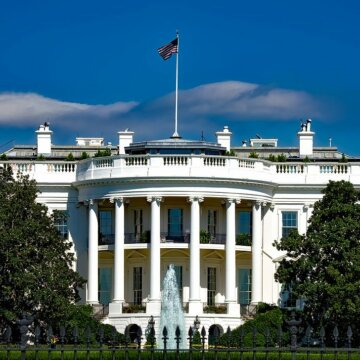- About
- Topics
- Picks
- Audio
- Story
- In-Depth
- Opinion
- News
- Donate
- Signup for our newsletterOur Editors' Best Picks.Send
Read, Debate: Engage.
| topic: | Climate Change |
|---|---|
| located: | USA |
| editor: | Yair Oded |
According to a recent study, climate change is viewed by a growing number of Americans as a top policy priority and will most likely play a major role for voters in the upcoming 2020 presidential election. The research’s results demonstrate that the changing climate remains a grave concern for Americans despite the twin crises of the global COVID-19 pandemic and economic collapse.
The study, conducted by Stanford University, Resources for the Future, and ReconMR, surveyed 999 adults in the U.S. over a time period of 10 weeks, has found that the percentage of Americans who believe that the climate crisis is an urgent issue and that the government should do more to tackle it is rising dramatically. This is evident is the rapid growth of an “issue public” around climate change - a group that feels passionately about the issue, perceives it as a personal concern, and often takes action to address it.
According to the study, the climate change issue public currently stands at 25 per cent of Americans, which is almost twice the 13 per cent that was recorded in 2015, making it the second-largest issue public after abortion. Such numbers remained steady throughout the spring and summer of 2020, much to the surprise of many who believed people’s concern over climate change would be eroded by the ravages of the coronavirus pandemic and economic crisis and the torrent of public outrage against systemic racism and police brutality.
Experts now predict that the sharp rise in public concern over climate change will bear impact on the upcoming presidential elections and, possibly, give Democrats an edge in the race over Republicans, who have continued to court fossil fuel donations and support the Trump administration’s assault on the government conservation mechanisms.
“I would never have predicted this 25 percent,” Jon A. Krosnick, a communication, political science and psychology professor at Stanford University and leader of the project told The New York Times. “The Democrats just gained a significant number of people who are powerfully now inclined toward them on the issue.”
Dr. Krosnick’s assertions can already be seen on the ground, with a growing number of climate donors rushing to support former Vice President Joe Biden in order to counter the fossil fuel industry’s backing of President Trump. This is the first time in American history when a political party officially accepts climate donations and proactively campaigns on climate and environmental issues.
All the while, environmental advocacy groups have been working on the ground in order to translate public concern over climate change into meaningful action and, crucially - votes. In order to do so, many environmental groups have been labouring to ensure a fair and transparent election in November. “Environmental groups are acutely aware of the fact that their agendas are not going to be accomplished if the vote is not free, fair and accessible,” Myrna Pérez, director of the voting rights and elections program at the Brennan Center for Justice at NYU law school told The New York Times. “Reform generally is not going to happen unless our democracy is representative and robust and participatory — and the environmental groups are getting it.”
It should be noted that despite the remarkable assent of the climate crisis in the psyche of many Americans, it nonetheless remains a highly divisie and partisan issue. As indicated in a February 2020 report by Pew Research, an estimated 78 per cent of Democrats view climate change as a top policy priority compared with merely 25 per cent of Republicans, making the climate crisis the greatest partisan divide in 2020.
A growing national consensus around environmental issues, including the climate crisis, should be cultivated even past the 2020 presidential elections. The future of our planet and civilisation hinges on the understanding that issues of economic prosperity, public health, and racial justice are not separate from ecological considerations, but are inextricably linked to them.
Image by David Mark

